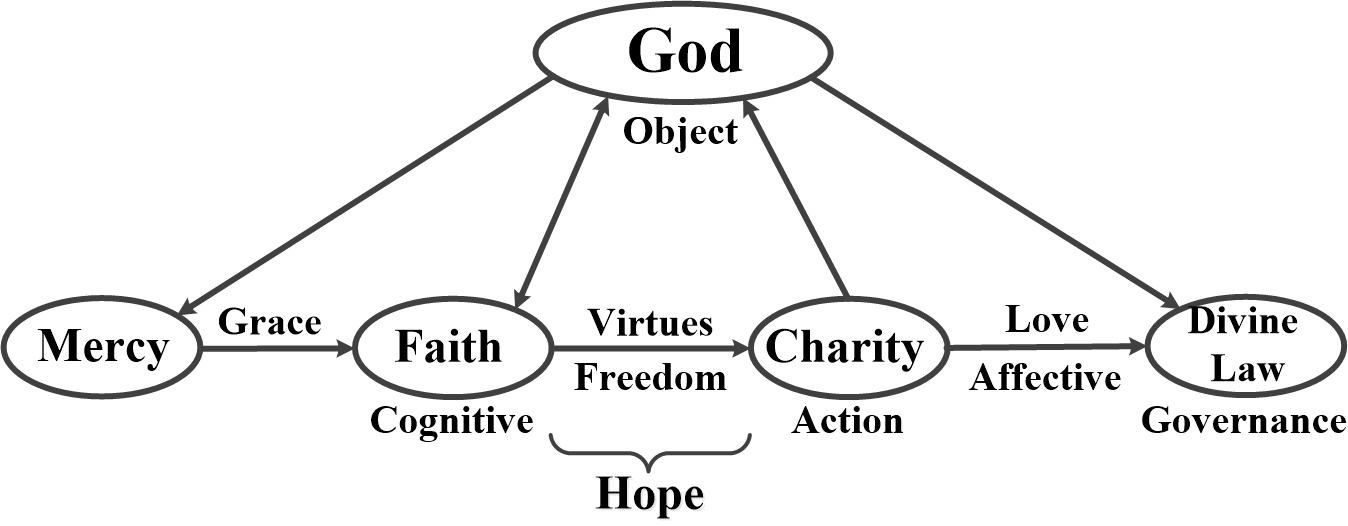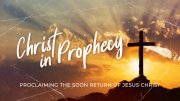The last article covered the Biblical principle of stewardship. Today it’s time to talk about the other side of the coin—charity. This article covers several aspects, including; what is charity, its purpose, a model of charity, and some implications from the discussion. So, shall we start?
What is Charity?
Today’s discussion focuses on charity’s Biblical nature. Its dictionary definitions include: providing of help to the poor; an institution, organization, fund to aid those in need; and an inclination to think well of others, tolerance. But we’ll see these are all pagan (i.e., man’s) definitions.
Pagan charity is all about the giver. It is a public display of their virtue based on self-interest. During the last days of Rome, just a few thousand family’s wealth supported the entire city. Extreme income and wealth inequalities existed, the result of its government’s centralized and concentrated power and corruption.
The definitions also include institutions. Rome provides a relevant example here, too. Rome’s emperors created massive welfare programs after the empire reached its peak. These programs provided a ‘living wage’ to those who could not support themselves. The government provided food and entertainment—bread and circuses—to keep the masses fed and entertained, so they could do what they wished. Sound familiar?
Governments also took steps to control their money supply. In those days, kingdoms used precious metal coins made from gold, silver, copper, etc. Governments would devalue their currency by mixing other materials into the coins. This expanded the number of coins they could mint with the same amount of precious metal, but each coin was worth less. In principle, this is no different from the Federal Reserve’s endless money printing today. Governments also issued edicts requiring all earlier coins (those with more precious metal) be returned to the state. After all, the money was theirs, not yours. Failing to return the more valuable coins resulted in their confiscation. You ‘owned’ only what those in power allowed you to have.
The above notions were corrupt, because their underlying ideas were corrupt.[1] We see these same ideas in our governance today.
The Christian Alternative …
We previously discussed the difference between pagan and Christian virtue. Those differences lead to differences in charity. From a Christian perspective, we will use the following definition for charity. The funding or aiding of those in need in a way building virtue in both the giver and receiver. This definition has several advantages. First, it doesn’t confine charity’s form. Second, it does not specify to whom charity should be shown, or who should provide it. Third, it does not dictate how to provide charity. It simply states charity is between two or more individuals; at least one person has a need they cannot fulfill on their own, and at least one other person acts to assist them in fulfilling that need. The sole motivation is love for the person in need.[2]
We see this idea expressed throughout the Bible. Consider as examples Lev. 19:18, Matt. 19:19, and Rom. 5:6-8. Jonathan Edwards was one of America’s First Great Awakening preachers. He spoke extensively about charity. “The word [charity] properly signifies love, or that disposition or affection whereby one is dear to another, and the original agape which is here translated ‘charity’ might better have been rendered ‘love,’ for that is the proper English of it.”[3] We can add one more advantage to this second definition. The building of virtue in both the giver and receiver supports the Christian transformative nature we are all to embrace. We should try becoming better tomorrow than we are today, something we cannot do without God.
This leads us to our next Biblical principle.
Biblical societies embody God’s charity.
… And Our Purpose
Our purpose, if we follow God, is to become good. Becoming good requires our transformation. Charity is the means. God’s charity requires grace, faith, hope, love, virtue, and freedom.
A Model of Charity
Faith, hope, and love are virtues. The following comes from A Handbook of Natural Rights,[4] and its development can be found in Collectivism and Charity.[5]
A friend asked Augustine, “What is man’s chief end in life?” He responded knowing thoroughly the proper objects of faith, hope, and love.[6] Faith, hope, and love are the means to that end, and defended by reason springing from
- Our bodily senses (knowing creation);
- Intuitions of the mind (knowing God’s image within us);
- The testimony of those witnesses who wrote the Scriptures (knowing revelation).
Faith is the beginning for hope and love. Without faith, these other two cannot exist.[7] Faith is belief, and it is concerned with the past, present, and future. Faith may have both good and evil as its object, because both good and evil are believed, but the faith that believes them is not evil, but good.[8]
But faith itself is not the beginning. For Paul said, “I have obtained mercy that I might be faithful.”[9] God’s mercy is His freely given love to man: grace. A love we did nothing to earn—another gift. But, even after one has become justified by faith, grace should accompany us on our journey, and we should lean upon it, lest we fall.[10]
Hope differs from faith in that it has only good as its object. It is the expectation of good things to come. It is the light that shines in the darkness. Hope is the basis for our actions and, unlike faith, it is concerned only with the future. Lastly, the virtue of hope doesn’t change with circumstances.
Finally, God instructs us to love: first to love Him and then our fellow man. For without love, faith profits nothing, and in its absence, hope cannot exist. The Apostle Paul approves and commends the “faith which worketh by love,” and this certainly cannot exist without hope. Therefore, there is no love without hope, no hope without love, and neither love nor hope without faith.[11] Love is faith and hope’s fulfillment.
Thomas called faith, hope, and love the cardinal virtues, because each oriented us toward God. Further, the Greek word for this type of love—agape—is translated as both love and charity. The first translation refers to love’s affect and the second to its actions. All we’ve discussed is also voluntary, it requires the use of our free will—freedom. From these notions, we can derive the following model.[12]

There is one additional item to add to this diagram, and that is peace. Peace comes through fulfilling our purpose, performing acts of charity out of love in obedience with divine law. This is true peace, eternal peace, and cannot be achieved without faith, hope, and love.
Some Things to Consider
I cannot end this article without mentioning a few things from today. All oriented around our ‘safety and security.’ I hope you consider them in the light of the things just discussed.
- Government issued stimulus checks in response to illegitimate, immoral, and illegal economic shutdowns. How much harm have the shutdowns caused?
- Continued economic restrictions for a patented virus no one has been able to isolate, and has a recovery rate of over 98%.
- Our current open borders, and new legislation to give non-citizens stimulus payments more than ten times greater than given to America’s citizens. They are also given preference to services such as foster care, schooling, and travel. Is this to corporatize illegal aliens?
- Executive order limiting an individual’s right to defend themselves.
- Offering free gene therapies as vaccines. One thing they do well is alter your genetic structure. If one would not eat genetically modified organisms (GMOs), why would one allow themselves to become a GMO?
- The IMF recently cancelling the debt of 28 developing countries. An action it has never taken before. Why, and why now?
Do these things seem right? Who do they help or hurt? Luciferians get joy from hurting others. Those following God get joy from helping others. I suggest the above are the pretense of charity. The underlying reality is self-interest rather than self-sacrifice—aimed at concentrating control and all paid for with your money.
It’s time to confront the deception. I recently heard a statement by Dr. Everett Piper. I believe we must answer the question he posed as both individuals and a people. Patrick Henry said “Give me liberty or give me death.” Today’s attitude he summarized as, “I fear death, so take my liberty.” Which do we want? Which will we choose? We can only have one or the other. Just bear in mind any organization that ever promises to deliver safety and security has never done either, and the people they oversee likely deserve neither. All we need to do is wake up and say no to the deception.
Footnotes:
[1] For more, see the series on Critical Theory beginning with Critical Theory Idolatry, https://vachristian.org/critical-theory-idolatry/.
[2] Wolf, Dan, pp. 8-9, Collectivism and Charity: The Great Deception, Living Rightly Publications, 2016.
[3] Edward, Jonathan, p. 2, Charity and Its Fruits, from the Chapel Library, at http://www.hisonelife.com/uploads/4/9/8/6/4986072/Edwards_-_charity_and_its_fruits.pdf. Accessed 2015.
[4] Wolf, Dan, A Handbook of Natural Rights, Living Rightly Publications, 2018.
[5] Wolf, Dan, Collectivism and Charity: The Great Deception, Living Rightly Publications, 2016
[6] Augustine, p. 483, The Enchiridion, Nicene and Post-Nicene Fathers, Vol. III, Wm. B. Eerdmans Publishing Co., 1970. Ch. 3.
[7] Ibid, p. 486.
[8] Augustine, p. 1239, Treatise on Grace and Free Will, Nicene and Post-Nicene Fathers, Vol. V, Wm. B. Eerdmans Publishing Co., 1970. Ch. 13.
[9] 1 Cor. 7:25, Vulgate.
[10] Augustine, p. 1239, Treatise on Grace and Free Will, Nicene and Post-Nicene Fathers, Vol. V, Wm. B. Eerdmans Publishing Co., 1970. Ch. 13.
[11] Augustine, p. 488, The Enchiridion, Nicene and Post-Nicene Fathers, Vol. III, Wm. B. Eerdmans Publishing Co., 1970. Chapter 8. The Bible quotation is Gal. 5:6.
[12] More information can be found in:
Model – Wolf, Dan, Chapter 1, Collectivism and Charity, living rightly publications, 2016.
Components – Wolf, Dan, Chapters, 3,4,and 5, The Light & The Rod: Why Biblical Governance Works, Living Rightly Publications, 2020.





